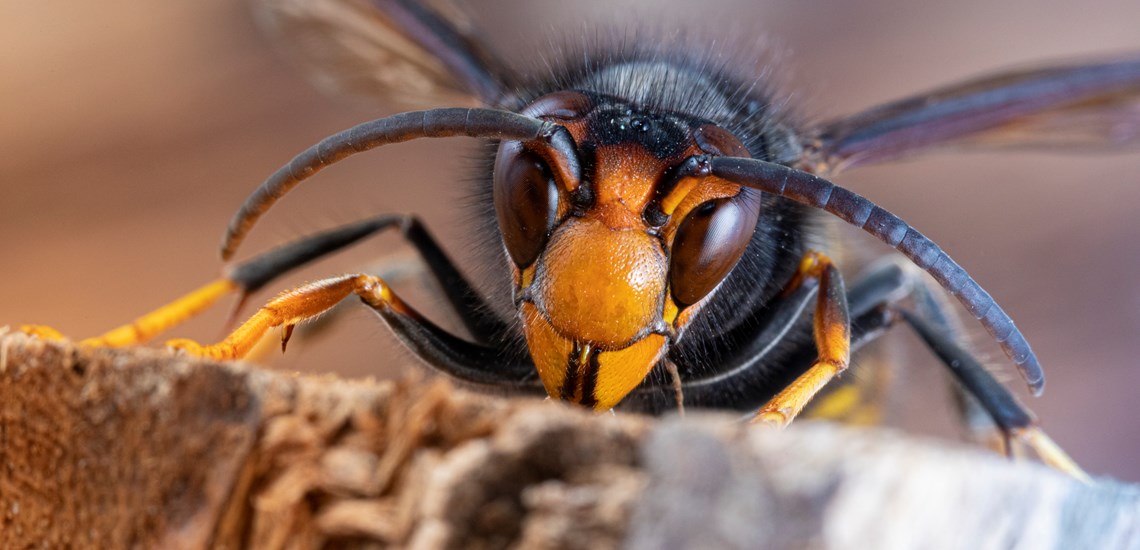
Southern Water buzzes into action to catch Asian Hornet Queens in Kent and East Sussex
Southern Water workers have turned their hand to pest control at wastewater treatment site across Kent and East Sussex - to tackle an influx of Asian Hornets.
Colleagues have teamed up with the Asian Hornet Alert group as part of a new pilot programme, installing selective traps to catch the species’ queens.
Asian Hornets are known as ‘invasive non-native species’ and arrive in mainland UK by hitchhiking on ships, trains and lorries, and even thanks to high winds. Due to the mild winter, experts believe many Hornets will have been able to successfully hibernate in our region, and now be reawakening locally.
A nest of Asian Hornets can eat up to 11 kilos of insects, equivalent to the weight of a standard car tyre, per summer season. Their favourite meals include honeybees and wasps.
Michelle Elliot, Volunteer for Asian Hornet Alert, said:
“Last autumn, we asked Southern Water to install Asian Hornet selective traps around their Wastewater Treatment Sites based in Kent and East Sussex as these were hotspot areas. Asian Hornets like water nearby, with trees and hedges, particularly brambles, being the perfect places to build their nests.
“Being able to team up with Southern Water for this pilot scheme means we will be able to monitor areas that the public would not normally have access to. The Asian Hornet is very aggressive if their nest is disturbed or threatened and can eat up to 50 bees a day. You may hear a hornet, due to the sound they make, before you see it.”
We are now entering the active season for Asian Hornets, and it is hoped that the traps set up late last year will catch their queens. Each queen caught stops a nest being established, which if allowed to happen can result in the production of a further 300 queens for the following season.
Matt Wagstaff, Environmental Advisor at Southern Water said: “Our Asian Hornet pilot scheme aims to help the Asian Hornet Alert group monitor more areas across nine sites in Kent and one in East Sussex. If the scheme proves to be successful, it has the potential to be rolled out to a wider area.
“As concerning as their presence can be for our local insect population, I would urge our customers and communities not to take any action into their own hands. Instead, leave it to the experts and don’t put yourself at risk.”
Asian Hornet Facts
- 11 kilos – the weight of a car tyre – of insects are eaten per season, per nest.
- 72 Asian Hornet nests destroyed last year in mainland UK with 67 in Kent.
- Only 23 nests were recorded between 2016 and 2022
- 300 - Each queen caught stops 300 queens the following season.
- 2 pence piece – The size of an Asian Hornet smaller than our native European Hornet
- 50 - Up to 50 bees a day can be eaten
- Is classed as an Invasive Non-Native Species
- You may hear an Asian Hornet before you see it
